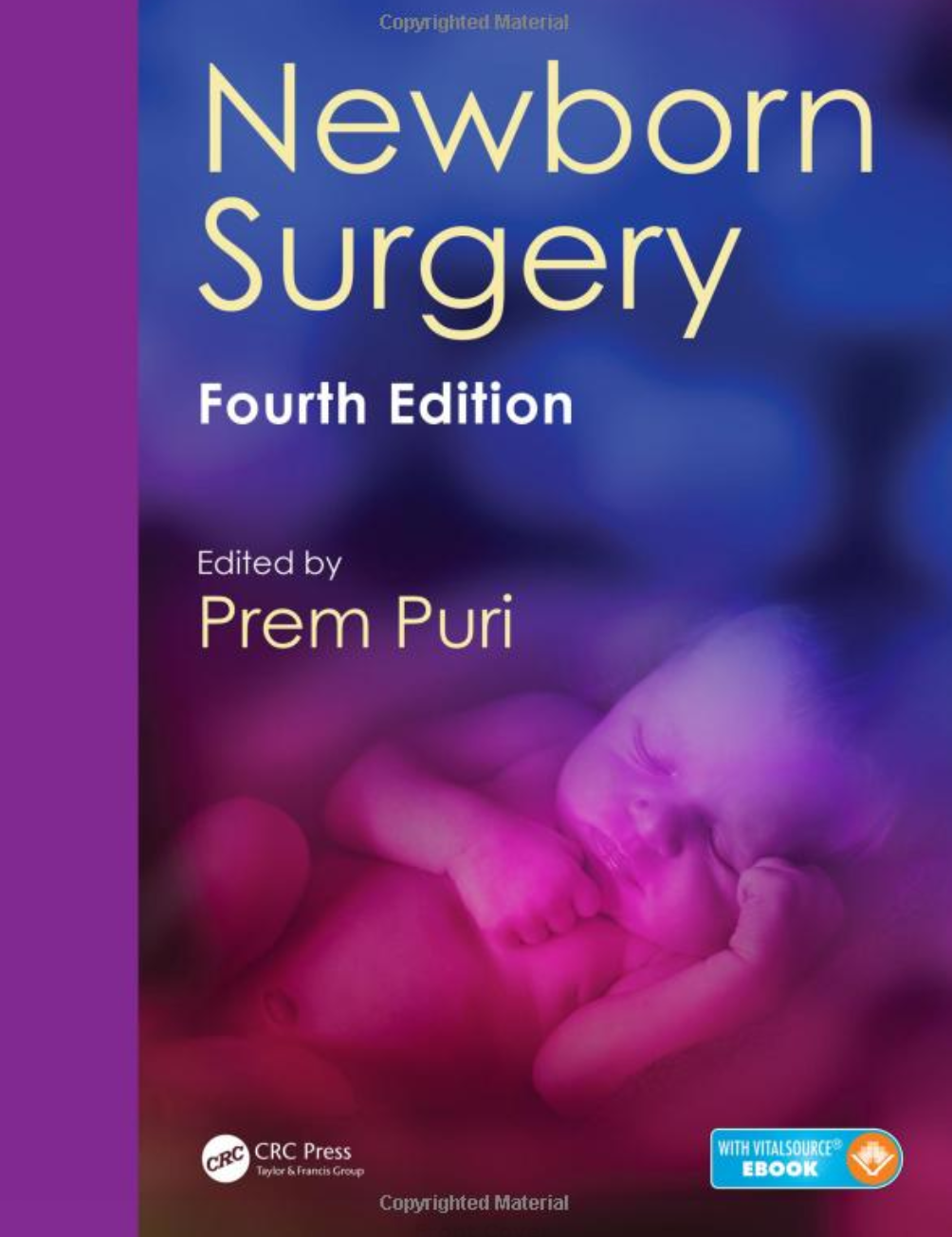Newborn Surgery (4th edition), edited by Prem Puri
1270pp published 2017
 Newborn Surgery, edited by Prem Puri has long been held as a cornerstone text for trainee paediatric surgeons; a one-stop shop for those approaching serious exams. At the end of 2017, a reworked 4th Edition was released. The 4th edition boasts 9 new chapters along with an overhaul of much of its previous content, and broadens the scope of an already wide-reaching textbook.
Newborn Surgery, edited by Prem Puri has long been held as a cornerstone text for trainee paediatric surgeons; a one-stop shop for those approaching serious exams. At the end of 2017, a reworked 4th Edition was released. The 4th edition boasts 9 new chapters along with an overhaul of much of its previous content, and broadens the scope of an already wide-reaching textbook.
Iain Yardley’s chapter on “Patient Safety” brings to the fore many familiar lessons drilled into the trainee cohort of the British Isles, but give an excellent summary of many salient points, the non-technical skills section specifically would be invaluable to any surgeon yet to be introduced to the topic. There is also a very pertinent section on Reporting and Learning as a means to improve safety standards; in the current climate within the UK health service, this acts as a reminder of the importance of open and honest self-appraisal as a means to deliver the best patient care.
“Specific risks for pre-term infants” by Emily Kieran and Colm O’Donnell demystifies many of the complex activities by our neonatology colleagues with a specific surgical slant, providing an understandable summary of cardio-respiratory and neurological phenomena, and reiterating the risks posed by the marked maladaptation for extrauterine life of the extremely premature infant.
“Stem cells and tissue engineering” by Paolo de Coppi brings the fast-evolving field of regenerative medicine directly into the field of Paediatric Surgery and certainly gives a solid foundation on which to begin reading more in depth for those interested in this exciting new prospect. The scientific content of this chapter requires a level of background knowledge and familiarity, with a sizeable amount of basic science literature being cited. However, once this is gained, it is abundantly clear the potential of many of the current developments in the field of Tissue Engineering. Of immediate interest is the coverage of tissue scaffolds in the context of organ replacement, which have already proven successful for tracheal transplantation in the author’s centre.
Many of the pitfalls and upsides to stoma formation in the neonate have been brought under scrutiny by Andrea Bischoff and Alberto Peña in their new chapter “Stomas of the small and large intestine.” A thorough read of the “Most Common Errors” section would undoubtedly lead to a session of self-scrutiny and possibly even spare some hair follicles at the time of a future pull-through operation!
Perhaps the most fascinating of the new additions comes in the form of the chapter “Surgical Implications of HIV” by Alistair Millar, Brian Eley and Sharon Cox from Red Cross Children’s Hospital in Cape Town, South Africa; this chapter provides insight of the devastating impact of the HIV/AIDS epidemic in a direct surgical context, the photographic illustration of the chapter adds vivid detail of conditions related to immune-reconstitution and marked immune suppression that many may never have heard of, let alone encountered in their practice, thus providing a most helpful reference for any surgeon aspiring to engage in work in the African continent or elsewhere in the less developed world.
The youth of today, stricken as they are by ADHD, often feel that textbooks are something of an antiquated tool, given the immediacy of access to online resources. However, the reality of newborn surgery is that much of the substance we see and treat is actually timeless. A well-prepared, nuanced chapter written by an expert with a perspective of practice provides secure foundations for knowledge. Whether you then choose to build on it with material conjured up from within the fleeting miasma that is the internet is up to you. Relying on the first entries thrown up by a Google© search may not necessarily offer a reliable perspective.
Newborn Surgery defines itself as a comprehensive text for trainees and established specialists and on this point it certainly delivers. The breadth of topics is comprehensive and by stretching his net to the far corners of the globe, Professor Puri has managed to engage the world’s opinion formers to distil the wisdom of their practice into a few pages each. What this does for the trainee is to provide the very best platform to develop a working understanding of a topic and the direction to head towards to discover the truly novel elements.
Joe Davidson MRCS – Specialist Registrar, Institute of Child Health + King’s College Hospital
Mark Davenport ChM FRCS (Paeds) – Professor of Paediatric Surgery, Kings College Hospital